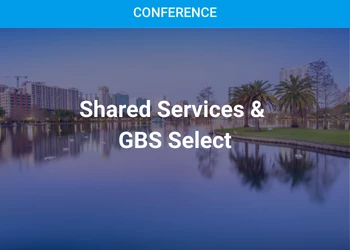East Europe: Your Base for Global Shared Services
Add bookmarkSSON Interview with Mariano Andrade,
Managing Director for Lithuania,
WorldOne
BH: Mariano. I am curious to understand more about WorldOne’s Lithuanian services centre. We hear a lot about Eastern Europe as a base for global services delivery. Tell us how your centre came about and how it fits into WorldOne’s global services delivery.
MA: Let me start with the history of WorldOne. We’re a fairly young company – we’ve been in the market for only 11 years and it’s really only in the last five years that we have been focusing exclusively on healthcare data collection for market researchers.
When WorldOne started, the concept – really the name – was based on having one location from which to service the whole world. At the time, that location and headquarters was based in London. As the business started developing into a more serious market research data collection agency we started competing in an industry that is always driven by costs. Data collection services is all about how quickly and how cheaply you can deliver the data that is being demanded by the market. Being based in London with most of our clients based or headquartered in the US, made it increasingly challenging to provide a cost effective solution from London; it just was not sustainable.
So, eight years ago, the shareholders started thinking about having a cost-effective, "smart" operations centre, located in central Europe where we could find languages and highly educated people in both the IT sector and in business administration.
We selected Vilnius as our hub for operations based on the language skills; we were looking particularly for people who could speak fluent English, German, French, Italian and Spanish. And we found all those languages in Lithuania. It was almost imminent that Lithuania was going to join the EU back then so that was also a big plus for us because it was only going to improve the standards, the infrastructure and the business culture.
We opened a small operations centre that, back then, consisted of five full-time staff and a small call centre of 20 people. Today, we have 110 full-time staff and 85 call centre seats, which tells you just how great Vilnius has been for our operations centre. For the last eight years, WorldOne has focused on running a successful operations centre in Lithuania to service the whole world. We have also developed some other strategic offices that are more focused on business development — so sales and client relationships.
All these years, business has been great for us and Lithuania proved an excellent choice. Back then, you didn’t have the supportive regional development offices that you have now – like Invest in Lithuania. So we did everything on our own and what I can say from that experience is that the process to open an office here, to get all the tax codes and all the legal paperwork taken care of in order to start working in Lithuania was very, very simple. It was a very easy set up back then; now, I believe it’s even easier.
BH: So today you are servicing WorldOne’s global operations from Vilnius?
MA: Yes. In fact, we are now developing another operations centre in Latin America; I am travelling to that operations centre this weekend. They just started working a week ago. And we are likely to open another operations centre somewhere in Asia during 2012. But the reason for spreading our wings into different geographies for the operational centre is mainly due to timezones: it’s not sustainable to have one operations centre to service the whole world with the kind of growth that WorldOne is experiencing. Last year we grew 80%; we’re aiming to grow another 60% this year. That aggressive growth is demanding strict attention to everything that we do – continuously. And it’s not really our culture to have people working 24 hours a day in business.
BH: We do hear a lot about these 24-hour shifts, especially in Asia. This is not something WorldOne promotes?
MA: No. The people we have found in Lithuania are great professionals, they have great ambitions, they all come with very high educational backgrounds, academically speaking. So it’s not a market which would sustain people working 24 hour shifts, even in the call centre. Compare this to call centres in London, for example, where you have a labour pool that is making a career out of call centre work; they work one week in one call centre and they move to the next, to the next … they are always looking to who pays the best and it’s a temporary work contract.
We don’t have that in Lithuania. In Lithuania we have to employ people on a full-time basis. And the people that we employ in our call centre, are employed full time. Most of them have one thing in common: they are students, so they are using this kind of work to support their studies, to support living in Vilnius. It’s not sustainable for them to combine work and study if they have to work all night. We have tried that in the past.
BH: Can you explain what kind of services you provide?
MA: When we opened the operations centre in Vilnius eight years ago we were looking specifically at the IT sector; we were looking for people who could support our systems and who could programme our questionnaires, our surveys. What WorldOne does is data collection through online surveys, so we needed a team of people who could programme. That was the first step. But within six months, we realised that we had a lot of potential to support project managers – or field coordinators, I think, is the appropriate term in the industry, so we developed a team that assists the project managers in London.
When we started recruiting for IT, we realised that the people were highly skilled in IT and that "programming" jobs would not keep them for long. So we started developing another department called software developer department, and very quickly, we divided the team into programmers – recent graduates – and developers of software and tools – those who had more experience. Up until today, ours is the only office among the 13 that we run that has a software developing team and it is my belief that it is going to stay like this. Because it’s an incredibly high-skilled labour pool here in Vilnius; they’re very flexible and they speak fluent English, all of them, so it’s an incredible team to work with.
When the work at the operations centre in Lithuania developed into a larger call centre that was servicing the main European markets and the US, we needed to bring in a quality control department, a larger pool of project managers, and a data processing department. Within one year all of these smaller departments started operating in Lithuania with different functions.
BH: Could you tell me about the work culture of the people in Lithuania? How would you characterise the work force?
MA: I think it’s fair to say that at the very beginning the cultural shock between WorldOne and the people coming into the new operations centre in Vilnius was significant; it definitely took us by surprise. The Lithuanian culture back then was far more rigid than it is now, and by rigid I mean people expected to have a very detailed contract and a very detailed description of their job. We quickly realised that these descriptive roles did not encourage anyone to "come out of the box". It was kind of working against us.
So we struggled at the beginning, in promoting a more flexible, westernised culture – one in which you go the extra mile. But it was also obvious that a very positive thing about Lithuanians was their natural curiosity to learn and to be part of an international company.
What was very effective in transitioning the mentality was an exchange programme we fostered with the London office. We came up with the exchange programme as an easy way to encourage the culture we required. We brought people from London to give support to the project managers here, and we started integrating the people from Vilnius in conference calls with clients, so they could hear from the client themselves what the client was expecting. This meant they understood the flexibility clients were demanding. In the service industry you have to serve your clients.
Apart from the exchange programme, we also have an open plan office – that’s a worldwide policy for us. All our offices are open plan so people are sitting in teams and there are no secrets, it’s very transparent; that’s the best training we could give the team in Vilnius. When somebody is on a conference call then the rest of the team can hear how the conversation is going. That significantly changed the way people thought. We are also offering language lessons. Back then we were focusing exclusively on English – but not really to teach them English, because everyone is fluent in English, but rather how to use the language — how to communicate a message, how to solve a crisis, how to negotiate; basically: how to use the language properly as a tool of work, rather than a means for communication.
I have lived here for seven years now and I have seen a great change in the Lithuanian culture since our early days here. I think initially, joining the EU created an immediate negative effect for Lithuania, as we had a massive emigration of Lithuanians going to work abroad, with the illusion that they would find higher bigger wages. So they moved to different parts of the EU and then obviously realised that although you do earn more money, you also spend much more. And they started coming back. I think 2008 and 2009 marked a big chapter in modern Lithuanian history because the crisis in Europe created a lot of unemployment — and Lithuanians began returning home. But they brought back to Lithuania a different mentality — flexibility, customer service orientation, and different manners. Plus, they had a great urgency to work. So 2008 and 2009 were years where we could gain a significant labour pool that was already trained and educated in Western business culture.
BH: How are you offering your Vilnius team the opportunity to move around the world with your operations?
MA: Nowadays we are moving some of our people from Vilnius’s services center to Mexico for the new operations centre. They’re going to stay there for three months. There are also people flying to the office in Charlotte, who stay there for two, three months. And others are going to Hong Kong. Also, people from the other offices are coming to Vilnius in support of the exchange programme. That makes it so much easier to get people involved in the WorldOne culture.
BH: From WorldOne’s perspective, the operation in Lithuania is here to stay and presumably to grow?
MA: Correct. We plan to leverage this centre even more in future.
BH: I imagine you are finding a lot of other companies are now moving into Lithuania. Is that having any kind of impact on the competitiveness of the labour market? You obviously invest a lot of training and effort into these new recruits so that they adopt the Westernised business culture that you require. How do you keep hold of your staff?
MA: Yes, definitely. There are new, big companies settled in Vilnius, like Barclays, Western Union, etc, as well as a number of Norwegian and Scandinavian companies that are also setting up operational centres in Lithuania. So we have already quite a few Westernised companies that are employing people here. I think that has had an impact on the recruitment market, but not to its detriment. I have noticed, after leading the operation for seven years, that the best time for us to recruit people for call centre work is in August, when people are moving from the countryside to Vilnius to start university.
To answer your question about turnover: We have a very healthy retention percentage. I think our turnover is less than 5%. Perhaps, in the current climate, that is because the unemployment rate is Europe is still high and people are scared of having to look for another job. But, historically, in WorldOne, if we take away the call centre because the call centre will always have a bigger turnover, we have a very good reputation in developing careers. Going back in time again, when we opened the office eight years ago, we started with eight people who very quickly became the pillars of WorldOne Vilnius. And within the first year we were 12. Of those 12 that I call the old timers, seven are still with us.
BH: That’s quite something.
MA: Yes. I think the key factors are that we have a practice of giving at least two performance evaluations a year, where we sit and talk about the goals that have been achieved so far, and what needs to be improved. And we have made efforts to make job evaluations a very positive experience; where we have something negative to say then we focus on the positive as well as the negative, and discuss how we to improve. You need to guide people’s expectations on how they can grow. So we motivate people by really appreciating the work that they have done, even if it’s not perfect. We tell them you have made excellent progress, that we expect them to be at point "x" in six months, etc. We always give goals that people are able to touch and reach.
We also do team building exercises. Recently, we had a wonderful three-day seminar that included a personality test. It helped the heads of departments to understand who they are and why they react the way they do in certain situations. Sometimes we just go canoeing for a weekend and spend time together and chat, just relaxing. We try two times a year to make a big party, a summer party and a Christmas party. And we subsidise language courses inside the company. Some people have subscribed to Spanish lessons recently, I guess on the theory that we’re opening an office in Mexico. We also offer some online seminars targeting the functions they are performing in the company.
In summary, I would mention that the educational level in Lithuania is rather high, it’s a very academically-oriented country; people really value a Bachelor’s degree or a Master’s degree. So education is always key for them. As a company, if you can invest in making your people better by offering them continuing educational opportunities – ie, giving them lessons of any kind that they can apply at work and even outside your company – that adds value to them, and they will reward you with loyalty.
BH: Mariano, you present an excellent case for WorldOne as well as for your Lithuanian office. Thank you so much for your time, it’s been a real pleasure speaking with you.
MA: Thank you Barbara.
Interested in finding out more about Lithuania? Download this whitepaper.





















